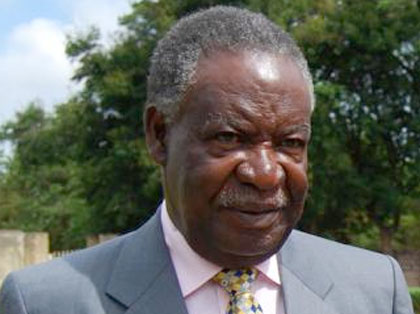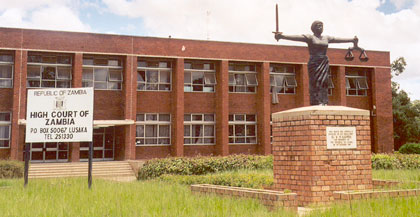BY NOREEN FAGAN – Michael Sata, a presidential candidate in Zambia, has become
the target of homophobic slurs that are threatening his political career.
![]() No, Sata is not gay, nor does he even support gay rights. He
No, Sata is not gay, nor does he even support gay rights. He
has become a target because people screwed up and misinterpreted what he said
about same-sex marriages and because the media has latched on to a scandalous
topic.

Quite simply put, Sata has obviously stood on someone’s toes
and that someone is out to get him.
As we all know, under the current clime that’s easy; just
mentioning the word homosexuality in any African country, except perhaps South
Africa, is akin to waving a red flag in front of a bull.
In March this year, Sata made a statement that Zambia is a
Christian country and that he has never advocated to legalize homosexuality, either in a personal capacity or in the Patriotic Front, the political party to which he belongs.
He also said that the laws uphold the moral standards of the
country.
“I know and believe that we have adequate laws as I have
stated earlier which address the position of Homosexuality in Zambia and that I
am not the authority on the subject but the will of the people and the laws of
this country.”
In his statement Sata accused the opposition party, the
Movement for Multi-party Democracy (MMD), of starting a smear campaign against
him and said that the media were being used as “its propaganda tools.”
And he was right.
The Zambia
Daily Mail wrote on June 14 that Sata’s love for the gays is as old as his
political career and that Sata “was a close associate of a Portuguese national
who was deeply involved in sodomy in the early 1980s.”
The article
goes on to state that the man was “alleged to have been a homosexual, who was
allegedly engrossed in acts of steamy same-sex escapades, which Mr Sata was
allegedly fully aware of.”
It also cited Joseph
Mfula as coming forward “to tell the nation that he is a living victim of
homosexuality, which Mr Sata allegedly condoned when he was a senior Government
official during the UNIP rule.”
In the follow-up article on June 15, the executive director of Forum for Leadership Search,
Edwin Lifwekelo, is quoted as saying that Sata “must not be given a chance to rule
Zambia because he may end up selling the country to gay rights activists.”
“Christians
must rise in numbers to fight Mr Sata’s support for homosexuality. No matter
how much he disputes it, records are there to show his open support for
homosexuals.”
So what is Sata doing about this?
According to a news website, on June 19 Sata asked the Lusaka
High Court “to grant him an interlocutory injunction restraining the newspaper
from continued publication of articles and related stories on homosexuality
against him.”

Sata has also sued the Zambia Daily Mail and two of its
reporters. Sata said the articles in the Daily
Mail were untrue because he “never practised homosexuality and has not
associated with any gay person.” Sata also said he had been “lowered in the
estimation of right-thinking members of society, both local and international,
and has suffered ridicule, odium and scandal.”
Wow.
All this because people think he said that he supported gay
rights. What would happen if he really was an advocate for gay rights?

At this point in time, I think he should throw caution to
the wind and come flying out in support of homosexuality. As a lesbian who was
born in Zambia but who left there because of the laws, I would give him my full
support.
 Why you can trust Xtra
Why you can trust Xtra


